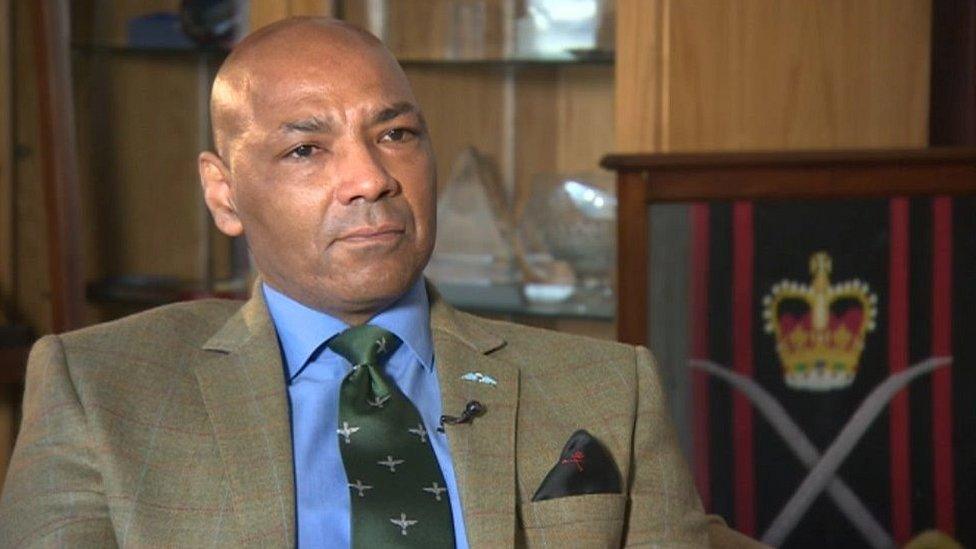Falklands War: Veteran says cycling helped him cope with mental stress
- Published
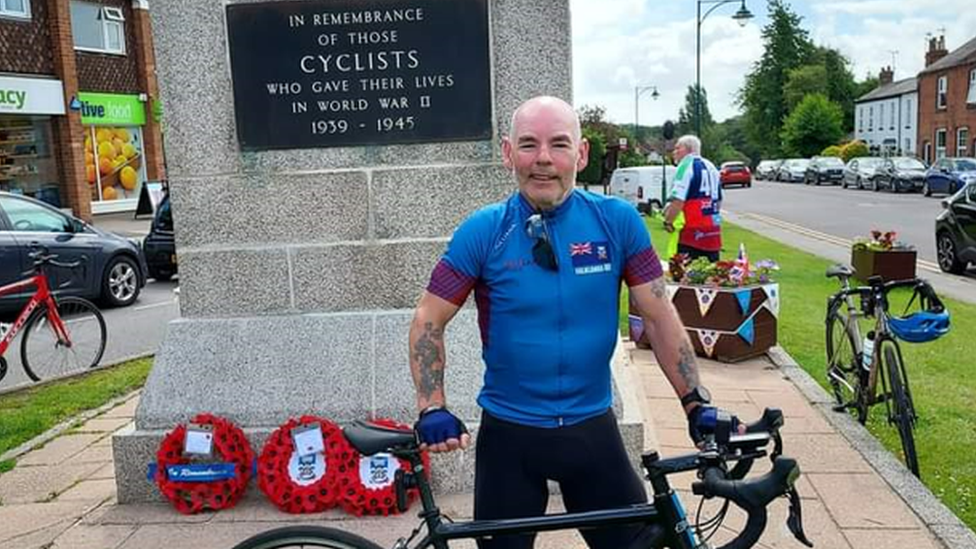
Mr Warner said cycling had 'changed his life'
A Falklands' veteran said taking up cycling helped him cope with the mental effects and injury he suffered in the conflict 40 years ago.
Chris Warner was on board HMS Plymouth when several bombs struck the ship in June 1982 causing an aluminium door hinge bracket to lodge in his brain.
Mr Warner, from Stone, Staffordshire, has a titanium plate in his head but said the sport had kept him positive.
He told his story ahead of a service at the National Memorial Arboretum.
The Duke of Cambridge will be attending the event on Tuesday to mark the 40th anniversary of the war along with veterans, civilians and bereaved relatives.
The conflict was a culmination of a long-standing dispute between the UK and Argentina over the sovereignty of the Falklands Islands and South Georgia.
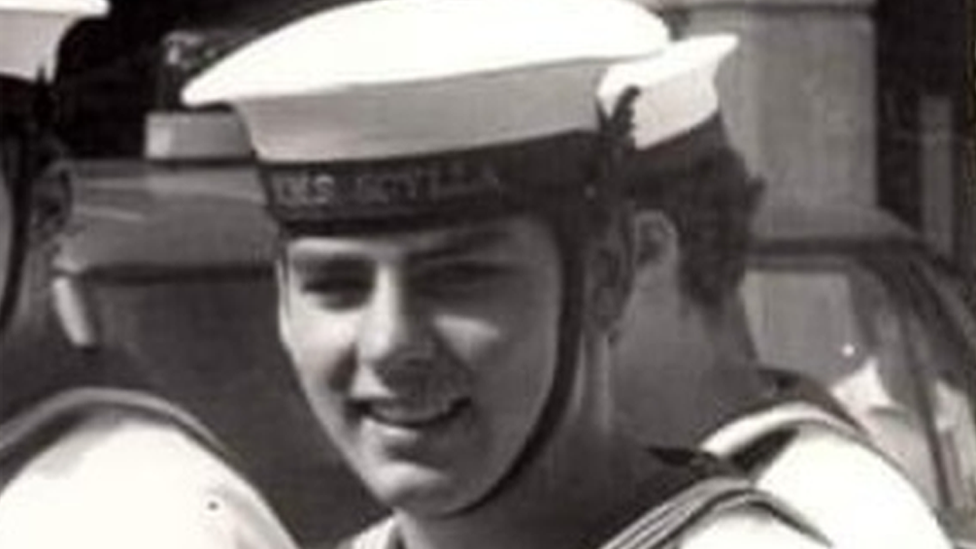
He hoped that by telling his story it would help others struggling with the fallout of the conflict
It led to 655 Argentine and 255 UK servicemen losing their lives, along with three Falkland Islanders.
Mr Warner said he hoped that by telling his story it would help other veterans struggling with the fallout of the conflict.
He said HMS Plymouth was the first ship to enter San Carlos Bay, later known as Bomb Alley due to the fierce fighting that occurred there between ships and aircraft.
Morale onboard was high until the sinking of HMS Sheffield on 10 May which "brought it home", he said.
And when they were struck the following month causing him a serious brain injury, Mr Warner said he was told by a surgeon that there was "nothing we can do for you".
"I thought I'm dead, I'm gone," he said.
"Luckily I wasn't or unluckily, I don't know."
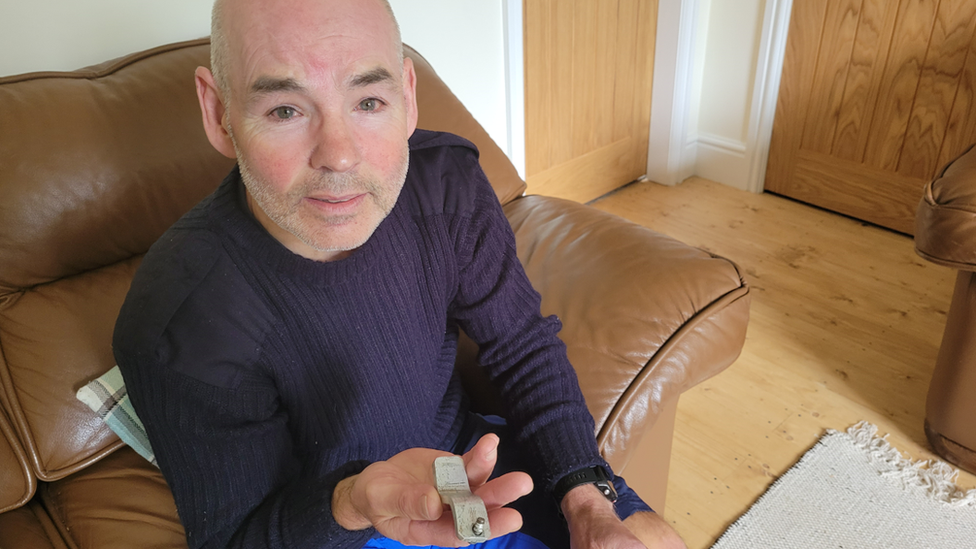
He now has a titanium plate in his head after the hinge embedded in his head
After many operations Mr Warner said the the plate now protects his brain and he has just completed an eight-day bike ride from Cardiff in Wales to Aldershot in Hampshire, visiting different memorials connected with the war.
He said cycling had "changed his life" and it was his main goal.
"You get a great feeling of adrenalin and it's a calming effect for myself," he said.
"I'm not sure if it gets rid of any aggression or any of that side of things... it makes me happy. I'm really pleased.
"I just hope that people especially the veterans focus on doing something in their lives... My main aim is to stay positive," he added.

Follow BBC West Midlands on Facebook, external, Twitter, external and Instagram, external. Send your story ideas to: newsonline.westmidlands@bbc.co.uk, external
- Published14 June 2022
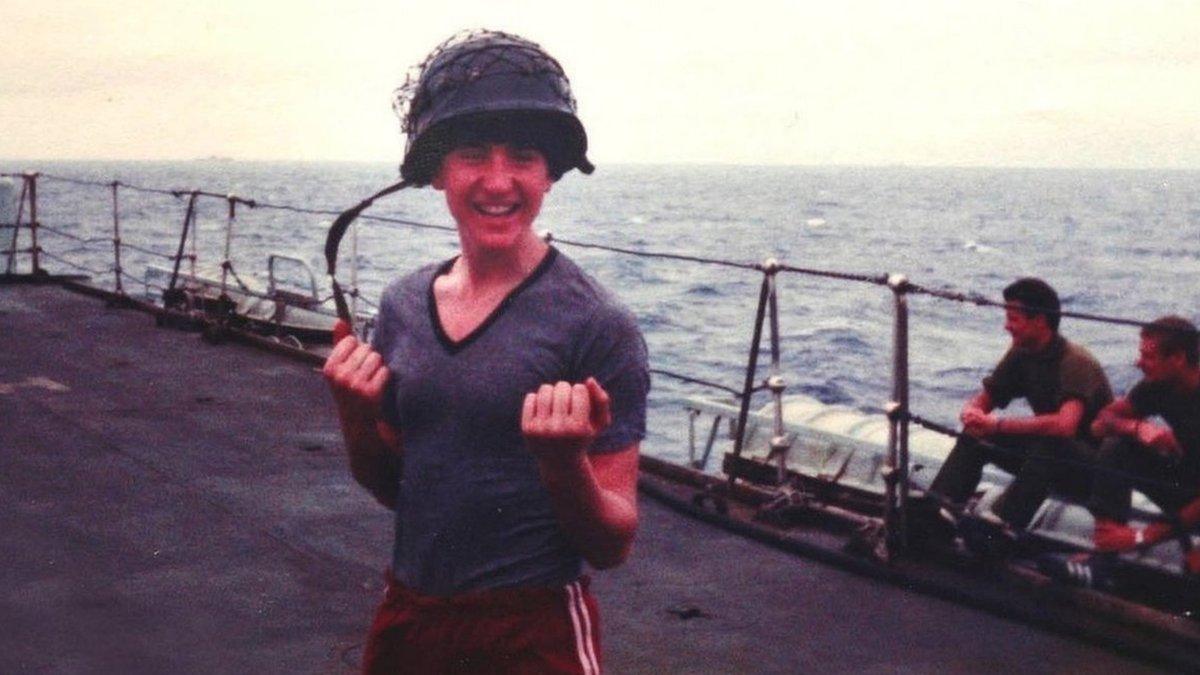
- Published11 June 2022
